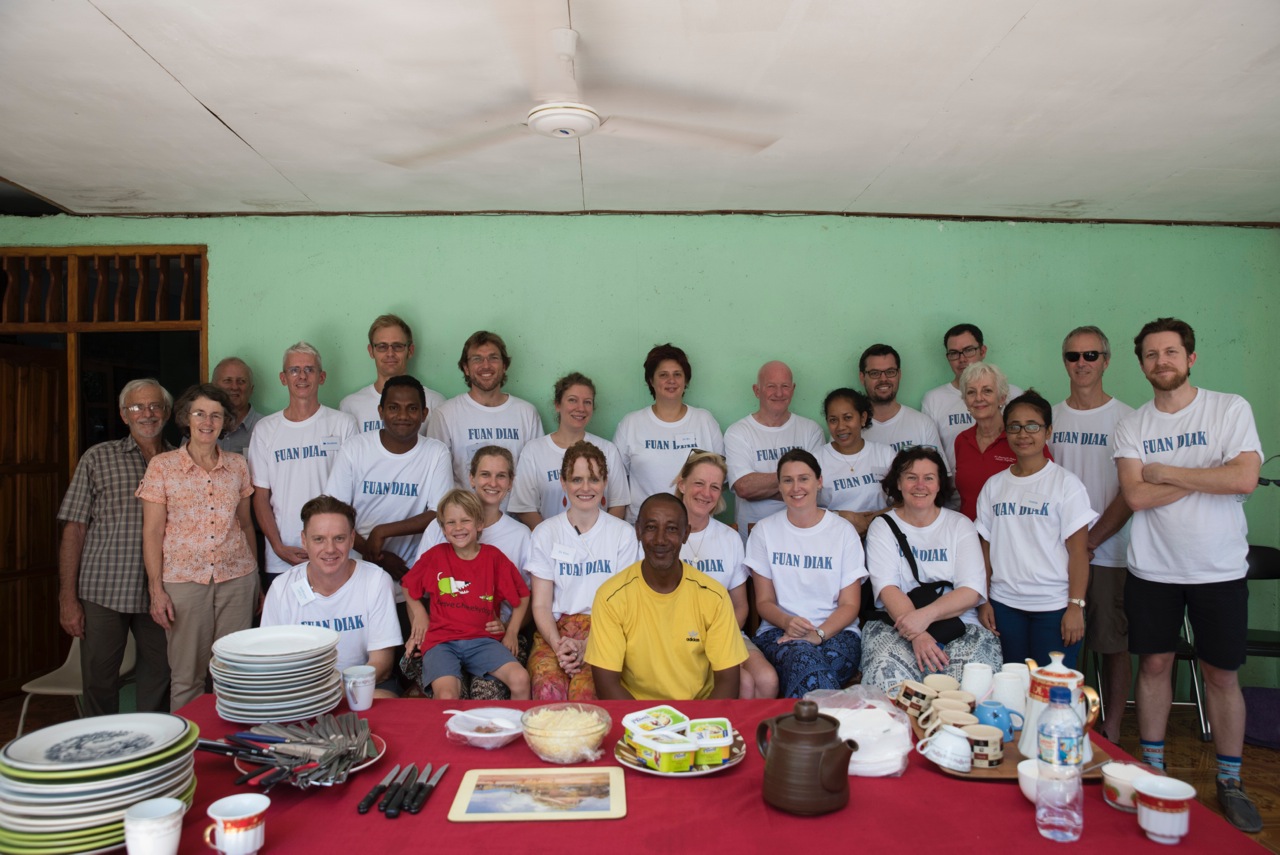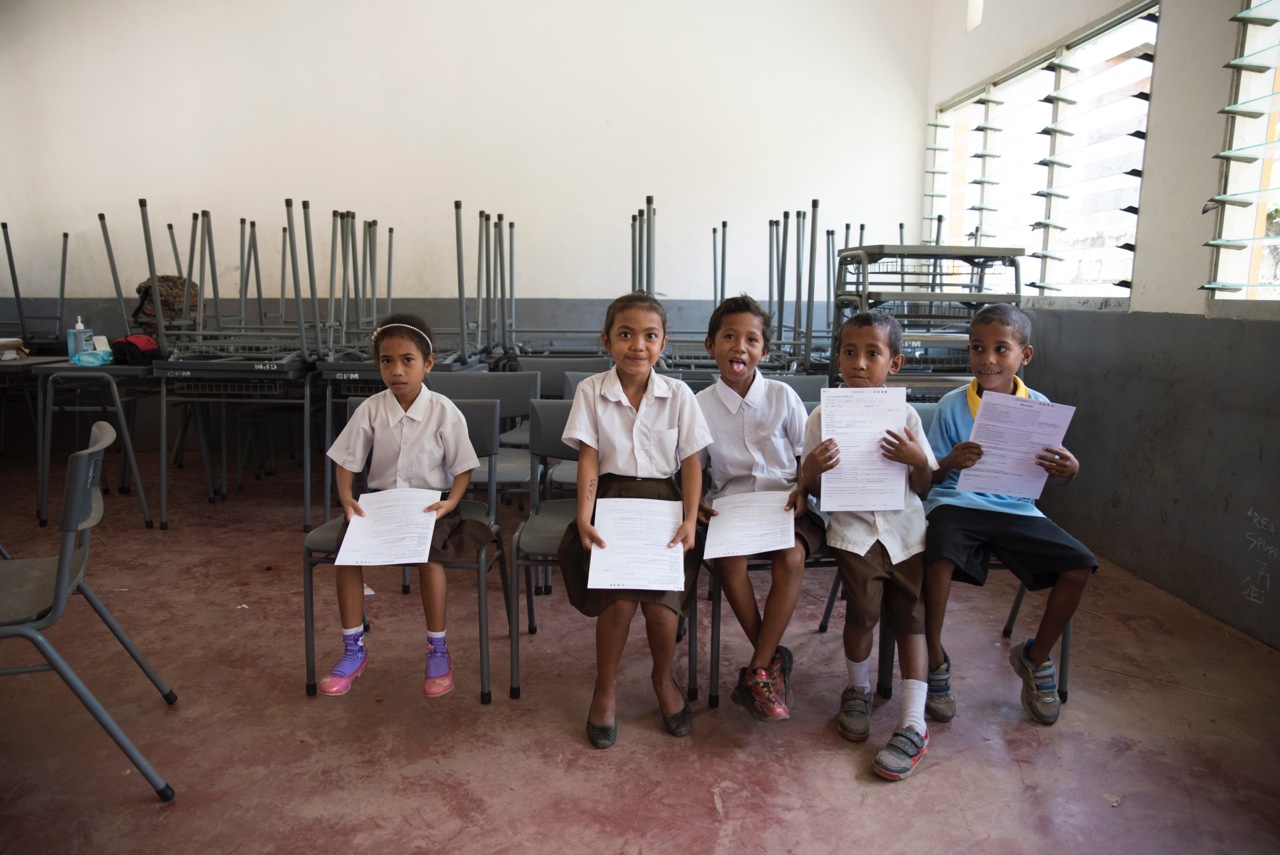Top End clinicians support Timor-Leste kids: Rheumatic heart disease screening in Timor-Leste
RHDAustralia works with affiliated organisations to increase awareness of acute rheumatic fever (ARF) and rheumatic heart disease (RHD) among health professionals, those living with disease, families, affected communities and the Australian public. We identify strategies to change behaviour, educate and support families and communities which aim to improve outcomes for those at risk of acute rheumatic fever and rheumatic heart disease. Prevention, at all stages of disease progression, is our priority.
That’s why we're proud to share the following story about a group of Darwin based clinicians volunteering their time to help children in Timor-Leste.
Timor-Leste is a beautiful half-island country in the eastern part of the Indonesian archipelago, about 600 km north-west of Darwin. It’s so close that it takes far less time to fly there from Darwin than to any of the major Australian capital cities. So close, and yet when I tell anybody that I visited Timor-Leste recently they look at me blankly and ask where it is and what could I have possibly been doing there?
Timor-Leste has had a very turbulent recent past. After being a Portuguese colony for 450 years, it was briefly an independent state for 9 days in 1975, before being invaded and integrated into Indonesia. Thus followed 25 years of Indonesian rule, during which the Timorese people faced starvation and great difficulty. They finally achieved independence in 2002 after a long and bloody struggle. Unfortunately, such a long period of colonisation, occupation, and then Indonesian withdrawal, left Timor-Leste with very little in terms of infrastructure and health care. As it stands today, Timor-Leste is one of the poorest countries in Asia, with one of the lowest outputs of health research, and some of the worst health outcomes in the region.
Royal Darwin Hospital, as one of Timor-Leste’s closest neighbours, is forging links with the national hospital in Timor-Leste’s capital of Dili. This has led to a registrar exchange program between their respective paediatric departments, giving Australian and Timorese registrars the opportunity to learn from each other and to observe some of the similarities as well as the stark differences between the two settings. Rheumatic heart disease, which is very prevalent in the Aboriginal population of the Northern Territory, is seen in Timor-Leste frequently at very advanced stages. All too often it results in the early death of young Timorese children and adults. Despite the obvious impact of rheumatic heart disease in clinical practice in Timor-Leste, the actual burden of rheumatic heart disease has not previously been documented. And until very recently, strategies for prevention of rheumatic heart disease have been rarely implemented.
On this background, a group of Australian clinicians embarked on a project designed to measure the prevalence of rheumatic heart disease in school-aged children and to provide an opportunity to establish effective secondary prevention with delivery of 4-weekly benzathine penicillin G injections for those identified through the screening project. The RHD-TL project was funded by East Timor Hearts Fund, Australia’s only medical aid charity dedicated to providing life-saving heart surgery in Australia for young Timorese, as part of its commitment to tackling the root causes of poor heart health in Timor-Leste. The study was also supported by RhEACH, St John of God Health Care, the Hospital Nacional Guido Valadares and Bairo Pite Clinic in Dili, Timor-Leste. Benzathine penicillin G injections were also generously donated by Pfizer.
In October 2016 a group of almost 30 Australian and Timorese volunteers including cardiologists, physicians, nurses and others spent a week screening for rheumatic heart disease using echocardiography, and examining children for skin infections including scabies and impetigo, in 3 schools in Timor-Leste. The first school was in the capital Dili, and the next two in Ermera district, an area best known for its excellent coffee. More than 1400 school children were screened during an extremely lively and busy week, filled with laughter as well as the serious business of work. We were even lucky enough to have choir songs sung to us in Letefoho by the school students, which was a very memorable way to start the work day! The Timorese people are very talented musicians, and this was no exception.
The study identified rates of rheumatic heart disease among the highest in the world, and very high rates of scabies and impetigo. Most of the students with rheumatic heart disease were given a penicillin injection on the day of their echo, and a rheumatic heart disease register has been created to follow up these children to ensure they receive ongoing injections, following the model for prevention of progression of rheumatic heart disease used in other countries such as Australia. The students with other heart problems amenable to cardiac surgery have been referred to ROMAC for consideration of surgical repair in Australia, and are awaiting their operations.
Key to the ongoing success of the register will be Timorese healthcare worker, Anary. Working at Bairo Pite Clinic, an Australian NGO based in Dili, Timor-Leste, Anary will take the lead in ensuring follow-up of children and adults with rheumatic heart disease in Dili and in Ermera, and will provide critical ongoing education for children, families, healthcare workers and school staff. With the help of training and resources supported by RHD Australia and the NT RHD register, Anary was an integral part of the study team and his ongoing work provides a potential model for further expansion of secondary prevention of RHD in Timor-Leste.
See more of what went on at East Timor Hearts Fund
Photo credits: Susanna Rossi – Photographs @susannarossiphotographs


